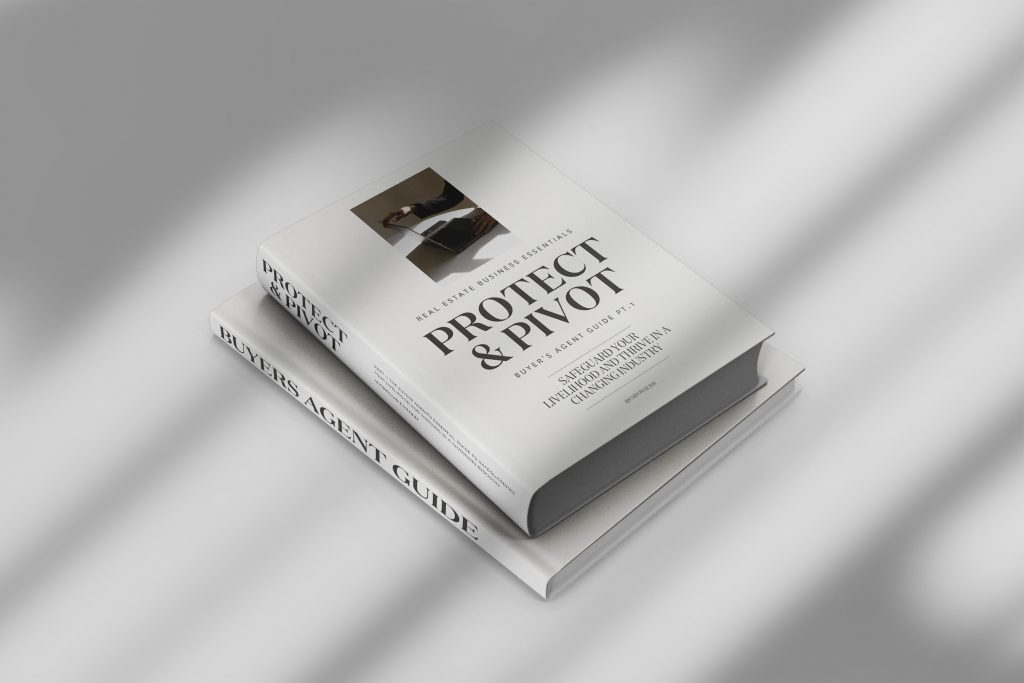Relationship marketing is a sales strategy that real estate agents turn to because it feels more sustainable and less salesy than traditional marketing tactics.
It relies on your sphere of influence (also called your ‘sphere’, or ‘SOI’), which represents all the relationships you have. This includes people you know via friends, family, community groups, past work, neighbors, hobbies, and more.
How does relationship marketing work?
You maintain strong relationships with your sphere of influence. When combined with brand awareness, real estate events, and a good value proposition, this real estate marketing strategy provides you with a steady source of referrals and new business.
Why does relationship marketing work for real estate agents?
Real estate buying and selling involves a high degree of trust.
When you have an existing connection with someone, you have a base of trust to work from. This added boost can make the difference between a client picking your services or listing with a competitor.
In fact, you can be the first and only call when someone you know needs to do a real estate transaction!
You can see this play out in the numbers.
According to NAR, 56% of buyers and 65% of sellers used an agent that was either recommended to them by friends and family, or they had used them in the past.
(Read more from their 2023 profile of Home Buyers and Sellers here.)
People typically engage in more than one real estate transaction over their lifetime.
People move all of the time! The national average is 13 years per home, but depending on your location (especially if you’re in a metro area), this number can be as low as 6-8 years.
Keep in mind that these numbers are averages. The people in your sphere of influence could be moving more or less frequently than these numbers indicate.
Depending on how many people you know, the odds are someone in your sphere is likely considering a real estate transaction at any given time.
By using a relationship marketing strategy with your network, you can win this business from the people you already know.
Real estate clients have a high Customer Lifetime Value (CLV).
Relationship marketing is based on a model of marketing success that says it’s easier to sell more to an existing client than it is to find a completely new client and close a sale with that person.
This applies to every kind of sale – from homes to workout gear. For example, let’s say you like a particular brand of gym wear like Lululemon. You like the look and feel of the fabric, you know which sizes tend to fit you, and you get emails when there are new products or sales.
The next time you need workout gear, are you going to reach for some new Lululemon, or are you going to take the time and energy to try a different brand?
From the moment you first bought something from Lululemon, you became more likely to buy from them again.
The same principle applies to real estate, even though it’s a transaction of a completely different scale. If you can win someone’s business once, the odds that they will trust you with a real estate transaction again go way up. Even better, they’ll refer others to you as well.
By allocating some of your time to staying regularly in touch, your client list becomes your number one source for new business and referrals. This type of long-term lead nurturing combined with other marketing tactics can leapfrog you to the very top of any top-producing lists.
Building your client list from your sphere of influence
1. Create a list of potential clients
Everyone you know is a potential client. To get started, compile a list of everyone you know.
(Need help getting started? Download your copy of the Sphere Of Influence Brainstorming Worksheet)
This will include family, friends, neighbors, people you went to school with, hobby groups, service providers, and more. If you’re feeling stuck, go through a calendar of the last few months and see how you intersected with people.
2. Add your list to Empowr CRM
Before you start contacting people en masse, you need to get organized. Relationship marketing is all about setting up a system to mine your sphere of influence. The best way to do this is using Empowr CRM.
Enter each person in your sphere into your real estate CRM. You can keep track of your activities, log a quick highlights note about anything you need to remember about the interaction, and schedule the next time you want to reach out.
3. Implement you relationship marketing strategy
Next up, it’s time to start contacting people! You can take two approaches to this: contact individually, or send out a mass email or text.
Individual Outreach
Use an email template as your starting point, but personalize it to each individual.
While this method is more time-consuming than just sending out a generic template to a large number of people, you’re more likely to get a response and form a connection using a more personalized approach.
Set a goal number of people to connect with each day or week, and keep going until you’ve worked your way to the end of the list.
Mass Email or Texting
With this approach, pick one sphere to contact at a time. So for example, reach out to your colleagues from your pre-real estate career one day, your softball teammates the next day, and so on.
Sort your contacts in your CRM by group, and send out a mass email or texts in just a few clicks. This approach lets you maintain a personal touch because you can personal your message so it’s relevant to that sphere. With a good call to action, this can be just as effective as manual outreach, while costing you less time.
4. Follow-up with a phone call or meeting
Your next steps will depend on the flow of your conversation. You might be able to engage in a back-and-forth conversation or uncover a new lead right away (yay!). If that happens, create a deal in your pipeline and follow your sales process.
If the conversation doesn’t progress organically, or your message goes unanswered, your CRM will help you prevent that person from falling through the cracks. Set up a reminder to follow up after an appropriate amount of time.
You want to nurture your connections, and make sure your network hears from you occasionally.
This type of regularity means that when you do go in with a sales pitch, the recipient is not trying to remember how they know you in the first place. (For a great example of how a less active outreach strategy flops, listen to Heather Colby’s story in episode 102 of the Ideas for Real Estate podcast).
5. Offer something free
An effective follow-up strategy involves having a reason for reaching out. You want to vary this by season, interest, and the type of your connection.
A great reason for reaching out is because you’re offering something for free!
It’s a way to gently remind your sphere of influence that you are a real estate agent while maintaining good vibes in your overall conversation.
Example freebies:
- Current Market Analysis
- Seasonal Home Maintenance Checklist
- Offer them a coffee on you (digital gift card, or in-person coffee meeting)
- Send a holiday card
- Hold a raffle in collaboration with local small businesses
To be most effective, these freebies should be easily shareable. This way you can benefit from your prospect’s networks and amplify your marketing reach.
6. Have an ask
People love to help, and this is doubly true for people who know you personally. However if they don’t know the kind of help you need, they won’t be able to support you.
So make it easy for them by communicating what you need clearly.
Since you’re focused on growth, your ask should be centered on this. It can mean requesting referrals, asking them to share a social media post, or liking and subscribing to your page. You can have several asks in mind, and use the one that best matches the person.
7. Clean up your list
This whole process will generate a lot of information! Save yourself from any missed meetings or accidental ghosting by using your real estate CRM throughout this process.
In addition to logging your activity, be sure to keep your contact list up to date by archiving anyone that’s outside of your market or no longer a member of your sphere for whatever reason.
Out-of-date lists aren’t just an inconvenience. Messaging someone that doesn’t want to be contacted by you can result in unsubscribes or a bad online review.
Staying on top of your CRM means you can focus your energy where it matters for growth.
Recap
These 7 steps will help you get started with relationship marketing. Build your client list and grow your book of business by doing the following:
- Create a list of potential clients
- Add your list to Empowr CRM
- Reach out to everyone with a personalized message
- Follow-up with a phone call or meeting
- Offer something free
- Have an ask
- Clean up your list.




